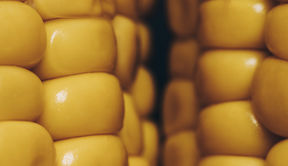What if AI video could solve the food crisis?

Food security is becoming a bigger and bigger issue; as climate change-related issues such as drought, heavy rains and other extreme weather conditions become more frequent, it will become ever more crucial to be able to develop the right crop genetics for different environments, to maximise resilience and yield of the plants.
As the human population grows, it’s estimated that by 2050, the demand for food will exceed supply by as much as sixty per cent. The quantities of agronomic inputs (land, water, fertilisers) cannot be increased proportionally, so further improvements are needed. Finally, climate change will cause significant challenges, which need to be covered to maintain food security in general.
Yield Systems CTO Jussi Gillberg says, ‘At the moment, machine learning deployment is underway in the global breeding industry, and early movers have adapted image processing with drone-based systems, and also other parts of the process are being automated. This is no wonder considering the highly data-intensive nature of the breeding process’.
The company originates from a research group led by Samuel Kaski that had developed machine learning methods for personalised medicine at Aalto University. As they went on, they found that personalised medicine and breeding domains were similar in the related prediction problems, and some solutions could be transferable.
The group started to focus on identifying plant varieties in arable farming areas, and determining which plants would work best for different types of land. The results would be used to develop more accurate prediction instruments for plant breeders.
From that research, Yield Systems developed an AI-powered observation instrument that, paired with machine learning, can get high accuracy estimates of canopy-level traits. This information is then turned into rich data and understanding about characteristics, unobservable with competing technologies. This high-relevance data is the key in crop production R&D that can deliver post-climate varieties and reach the extremely ambitious efficiency improvement goals.
Yield Systems as a company, commenced to exist in 2018 as a spin-out from the Aalto University Startup Centre with the aim of driving forward the ambitious goal of democratising AI for plant breeding.
The company chose to perform the first testing of their product without seeking VC funding and funded the development work by providing consultation. Now, after field trials from Morocco to Northern Europe, the central concept has been proven, and the company has proceeded to product sales aiming at scaling up rapidly.
Yield Systems, founded in 2018
Founders:
Harri Juntunen – CEO
Jussi Gillberg – CTO
Linh Nguyen – Data Scientist
Paul Wagner
The research group was given a nice boost in €480k from the Finnish Innovation and Technology Fund Tekes (or Business Finland as it’s now known) to hire a team for business development.
Major company milestones:
- Implementing and testing data-efficient algorithms that enable building the product in practice
- Developing robust-enough-for-field-conditions hardware (sun, rain etc)
- Understanding our customers well enough to propose them something they don’t already have; customers are experts and have dedicated most of their lives for these problems
- Growing into new roles as a team
https://www.yieldsystems.tech/
Read more news
Eden Telila's master's thesis contributed to Ramboll's geotechnical toolkit
Geoengineering alum Eden Telila helped Ramboll automate manual tasks.
Join a Unite! matchmaking event on forging new consortia for Horizon Europe applications
Calling researchers and industry partners to connect at a virtual matchmaking session designed to spark project collaborations for Horizon Europe funding. Registration deadline, 12 March.
Apply Now: Unite! Visiting Professorships at TU Graz
TU Graz, Austria, invites experienced postdoctoral researchers to apply for two fully funded visiting professorships. The deadline for expressions of interest is 20 February 2026, and the positions will begin on 1 October 2026.






